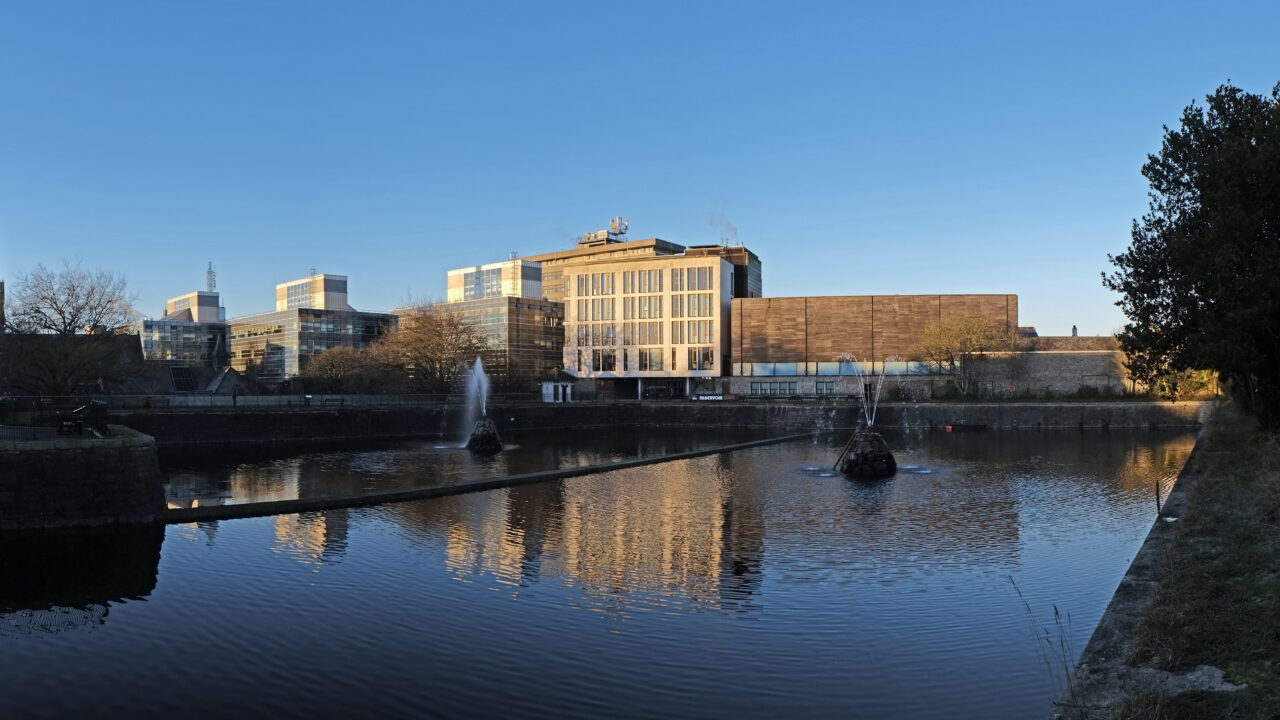Meet our members: Gavin Douglas
"The exciting bit is the chance to change and shape the University." Gavin Douglas, Registrar and Secretary at University of Plymouth, discusses his HE career with the biggest challenges and enjoyable aspects too.


What is your higher education history?
My first job in HE was running the International Office at Robert Gordon University in Aberdeen – some 20 years ago. I spent 8 years there, gradually expanding my portfolio to include UK marketing and admissions, before moving to the University of Sheffield to do a broadly similar job in a very different sort of institution. After 3 years there I moved to the University of Edinburgh to take up the role of Deputy Secretary (Student Experience) – this time, a very different portfolio including all the typical Registry and Student Services functions.
What does your current role and remit encompass?
Firstly, I am responsible for what you might call the educational and research focused professional services – Registry, Research & Innovation, External Relations, Academic Partnerships, Library, Educational Development, as well as the Planning and Analytics team. Secondly, I am Secretary to the University Board and have the usual range of governance responsibilities that come with that role.
What does a typical day look like for you in your role?
I am sure I am not the first person to have said that there is no such thing as a typical day in this role! And I have only been here a couple of months, so it is a little early to say. But there is a lot of time either chairing or participating in meetings, committees and project boards. (Who knew that it took so much work to plan for the Audit Committee?) Also reading, discussing and reviewing papers, policies and so on. Did I mention emails? There are quite a lot of those too.
What do you find most enjoyable and/or challenging in your role?
The exciting bit (and the reason I moved 450 miles to be here) is the chance to change and shape the University to become the outstanding institution – on all fronts – that it seeks to be by 2030. The challenging bits (so far): finding enough time to stop and think properly and deeply about the future rather than just today’s problem or tomorrow’s issue; and finding time to spend with staff, teams, students and hear directly from them what matters most. I am also responsible for the replacement of our student record system. I am sure that will also have its fair share of challenges….
What are the current challenges for your institution?
In really, really simple terms: generating bigger surpluses so that we can invest more in all the good things we already do and the even more amazing things that we still want to do. So: growing student numbers; moving into new markets; growing commercial activity; being smarter and more efficient at how we do things. As well as bringing everyone along on the journey, especially when lots of people are knackered after the pandemic.
What do you think are the biggest changes ahead for higher education?
I do tend to subscribe to the observation (allegedly by Niels Bohr) that “Prediction is very difficult, especially if it’s about the future.” Fortunately the government has made things easier in at least one regard by proposing that tuition fees for UK students will be frozen for another few years, so at least we know that.
But the obvious question is what lasting changes we will see coming out of the pandemic. Will things broadly go back to where they were or will there be a permanent shift away from conventional modes of delivery? I don’t think we know yet. What is clear is that, whether in response to student or staff demand, or in order to become more efficient and effective in a time of constrained resources, we should expect – and harness – further disruption from digital technology and-data driven innovation.
Who has inspired you and why?
Peter Felten at Elon University in the US. His work on the importance of relationship-rich experiences to successful learning and teaching is compelling, easy to understand and gets right to the heart of what we should all be trying to do to improve the student experience. You can watch his engaging, funny, wise and humane keynote at Edinburgh’s 2019 Learning and Teaching Conference here.
Related Blogs



